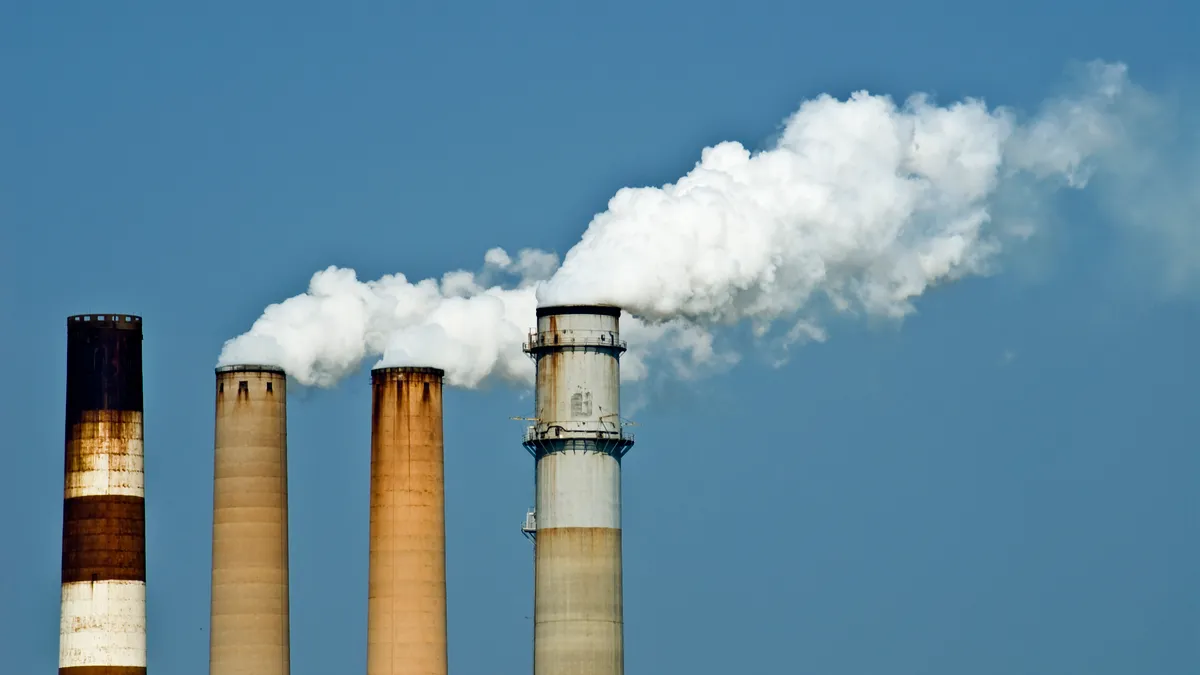Dive Brief:
- In its latest scoring of major fashion companies’ decarbonization progress and commitments, the environmental advocacy organization Stand.earth gave all but one player a C-level grade or lower.
- Of the 43 companies assessed, six received an F grade, including fast fashion giant Shein, luxury brand Prada and women’s fashion specialist Boohoo. Another 22 companies — just over half — received grades in the D range.
- “Overall, progress over the past 18 months has been insufficient and extremely disappointing,” Stand.earth said in its executive summary.
Dive Insight:
The climate clock is ticking. Human activity has already led to a 1.1 degrees Celsius rise in temperatures over the last century, leading to climate extremes and more frequent extreme weather events, according to the latest report from the Intergovernmental Panel on Climate Change.
Fashion’s role in containing climate disruption is sizable. Apparel and footwear combined make up an estimated 8.1% of the world’s climate impact, according to Quantis.
A McKinsey study found that, as of 2020, the industry was on pace to nearly double the 2030 emissions target set by the IPCC to keep warming under 1.5 degrees Celsius globally. That threshold is meant to contain some of the worst impacts of climate change such as severe heatwaves and rising sea levels, among other environmental impacts.
The lion’s share of emissions for fashion fall under what’s known as Scope 3, which includes the footprints of a product’s supply chain and end use. That is an area where much of retail and fashion have made little progress, though the IPCC’s target year of 2030 is fast approaching.
Materials are a key input into Scope 3 emissions. Just two companies in Stand.earth’s index score above the C range on its low-carbon materials category: Kering (B-) and Eileen Fisher (B).
Meanwhile, some giants of the industry carried very low scores on materials, including Amazon (F), Walmart (F), Target (F), Shein (F), Adidas (D-), Gap (D-), Under Armour (D-), REI (D-), Nike (D) and several others.
In another key category, shipping emissions, all fashion players but two (Mammut and VF Corp) scored in the D or F ranges. Fast fashion giant H&M, which scored highest overall in the index with a B-, received a C- on materials and D+ on shipping.
If there is reason for any optimism, it could be found in scores on the index’s commitments and transparency category, which Stand.earth noted have increased since its last study. Only one company (Columbia) scored an F, and eight scored in the D range (including Amazon, Under Armour, Shein and Prada). The rest were in the C range or higher.
However, Stand.earth found that only five out of 43 companies have set emissions reductions in line with the IPCC’s 1.5 degree Celsius scenario. Moreover, some executive surveys from across the corporate world suggest that companies might not have the plans or wherewithal to actually meet the targets they do have on environmental and climate issues.
Editor’s note: This story was first published in our Procurement Weekly newsletter. Sign up here.














